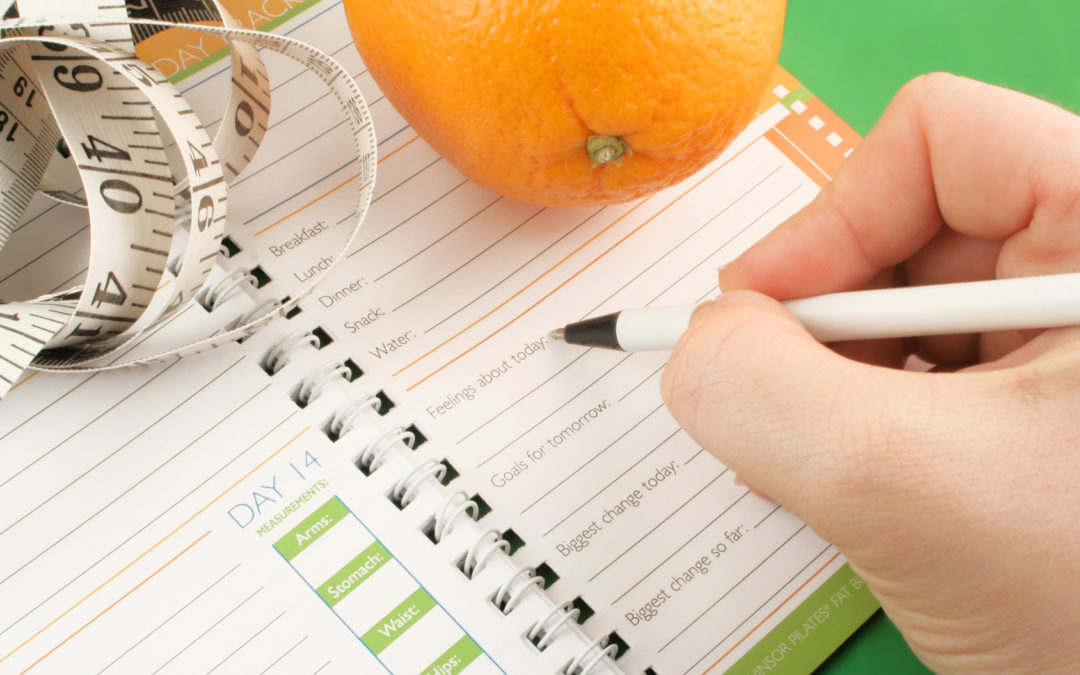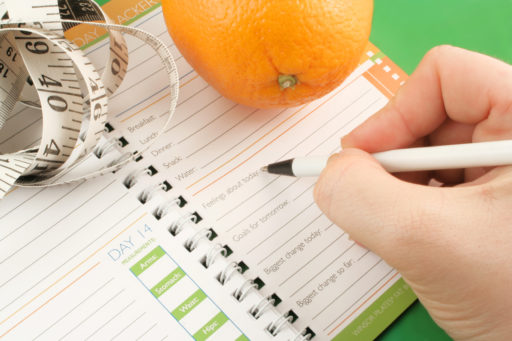They say you can’t manage what you can’t measure. While that’s usually a tenet of business, it’s also true when it comes to keeping track of your diet after weight loss surgery. A food journal is a tried-and-true way to monitor what you consume each day.
Keeping a food diary is simple: everyday write down everything you consume. Here’s how a food diary works.
Promotes Accountability
Diaries help people avoid the common pitfall of underestimating calories and portion sizes. For bariatric patients, a food diary does more. Following the diet prescribed by your dietitian is key to making the most of your procedure. Writing down everything you eat and drink, including water and supplements, helps you make a new routine habit.
Identifies Trends, Problems and Successes
A diary helps to establish what works for you. Did that high-carb snack make you sick? Did a protein shake stave off hunger? Are you getting all the nutrients you need? If you’re having health problems or trouble with your diet, your dietitian can analyze your food intake and recommend adjustments.
Gives You an Emotional Outlet
Bariatric surgery can be an emotional rollercoaster. A diary provides a safe place to vent and record thoughts and feelings. You may want to keep a separate journal if you like to write a lot. At minimum, record how you’re feeling on your new diet.
Function Is More Important Than Form
A paper diary is simple and straightforward. A digital diary has the advantage that it’s easy to share. If you use an app, you may be able to easily track nutrients and calories. Choose the form you prefer and will feel motivated to stick with.
Make the Most of Your Food Diary
In its most basic form a food diary can be a list of everything you eat and drink. Including key information is important. Here are some of the basics to make the most of your diary.
- Be detailed and thorough. The purpose of the diary is to keep track of everything you consume. Record what you eat and drink, measuring or weighing portions and counting servings.
- Keep a running update. Record immediately after you eat and drink. If you wait until the end of the day to fill out the diary, you’ll likely forget to include everything.
- Eat at home. It’s easy to measure ingredients and manage portions when you prepare food at home. If you do eat out, estimate serving sizes by comparing portions to your hand. Your fist is approximately one cup. Your thumb is close to a tablespoon.
- Don’t fear Failures. Your diary will be a powerful tool if you’re honest. If you take a misstep, record it. Note the reasons for the setback. Learn from your mistakes, but don’t beat yourself up.
Helping people succeed after weight loss surgery is our mission. Contact us or attend a free seminar if you’d like more information about our services.



